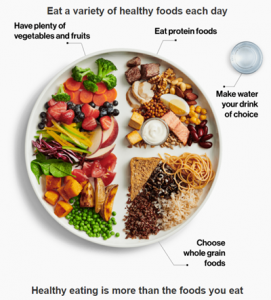Do you know an unhealthy diet, combined with sedentary lifestyles, are the number one risk factor for disability and death from non-communicable diseases?
The Food and Agriculture Organisation (FAO) celebrates World Food Day every year on 16th October. The theme for 2019 is Zero Hunger. It goes beyond just simple hunger. It means enough nutritious food for everyone, everywhere.
Many Asian nations experience a dual burden of undernutrition and overnutrition simultaneously due to greater and easier availability of processed foods which are calorie dense and not nutrient-dense.
Here are the 6 simple steps for having a nutrient-dense healthy lifestyle
1. Eat a balanced diet
Incorporating your diet foods from all foods groups. The different food groups are:
- Rice and alternatives
- Fruits
- Vegetables
- Meat and alternatives
MyDoc healthcare team,
Claudia, dietician


